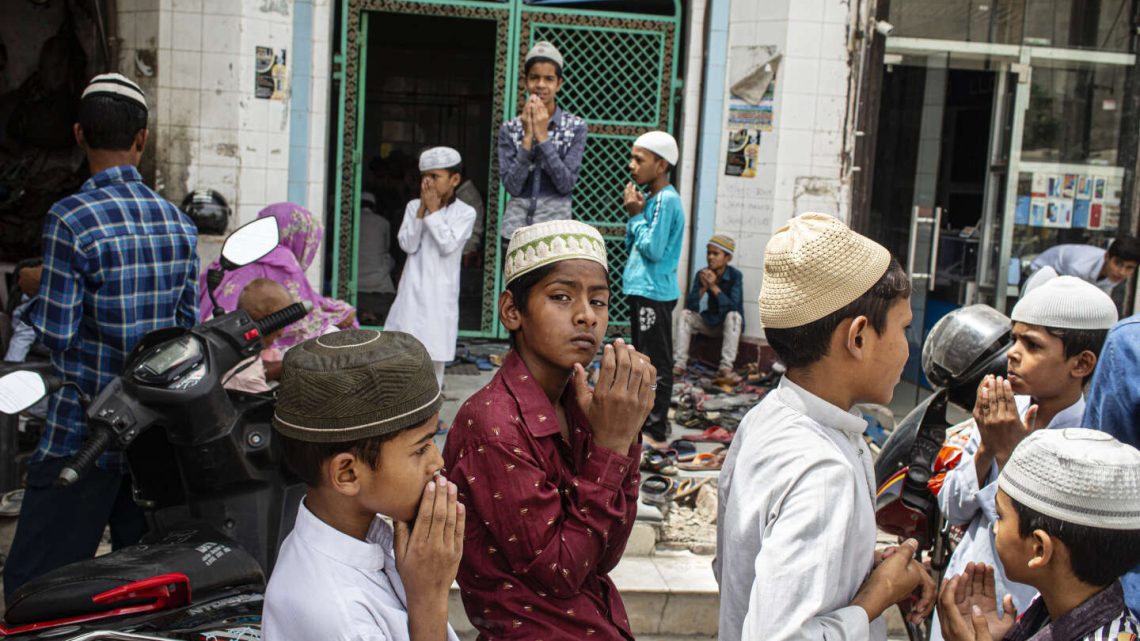
Indian-RSS Ideology: Ban on Eid Prayers at Shahi Eidgah in Delhi
April 4, 2024Indian police authorities have sparked outrage by prohibiting upcoming Eid prayers at the historic Shahi Eidgah in Delhi’s Mehrauli area, disregarding the religious sentiments of the Muslim community.
According to reports, the decision has raised concerns, particularly as two appeals from the Muslim community were dismissed by the authorities. A member of the Eidgah Committee expressed frustration, stating that despite inquiries, the police failed to provide a satisfactory explanation for the ban.
Local religious leader Maulana Nasruddin lamented the situation, emphasizing the historical significance of the Shahi Eidgah and the adjacent Akhundji Mosque. He highlighted the demolition of the mosque and the adjoining madrasa, followed by the police ban on prayers, as deeply troubling developments.
Maulana Nasruddin underscored that the Eidgah has served as a place of worship for generations, echoing sentiments shared by many within the community.
Officials associated with the Shahi Eidgah expressed surprise at the sudden ban, noting that it is unprecedented in the area’s history. Shaukat, an official, highlighted the confusion surrounding the ban, especially considering the peaceful conduct of Eid prayers in the past.
Community leaders have voiced concerns over the ban, demanding clarity from authorities. The prohibition of Eid prayers at the Shahi Eidgah has ignited a debate about religious freedom and the preservation of cultural heritage in Mehrauli.
The ban on Eid prayers at the Shahi Eidgah represents a troubling infringement on religious rights and cultural practices. It not only disregards the sentiments of the Muslim community but also undermines the historical significance of the site as a place of worship.
The lack of transparency and explanation from police authorities only adds to the frustration and confusion surrounding the ban. Community members rightfully question the rationale behind such a decision, particularly when Eid prayers have been peacefully conducted at the Shahi Eidgah in the past.
Moreover, the ban raises broader questions about religious freedom and the protection of cultural heritage in India. It underscores the importance of upholding the principles of religious tolerance and respecting diverse cultural traditions.
As the debate over the ban continues, it is imperative for authorities to engage with the concerns of the Muslim community and address the underlying issues at hand. Preserving religious freedom and cultural heritage is essential for fostering a harmonious and inclusive society.

